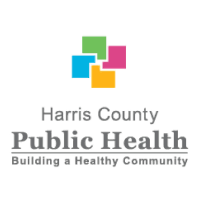 November is Lung Cancer Awareness Month
November is Lung Cancer Awareness Month
HOUSTON – Lung cancer is the third most common cancer in the United States. According to the Centers for Disease Control and Prevention (CDC), 209,500 new lung cancer cases were reported in 2021, and in 2022, 131,888 people lost their lives to lung cancer. This November, Harris County Public Health (HCPH) is raising awareness and offering resources to help residents stay healthy and prevent lung cancer.
Lung cancer often doesn’t show signs until it is advanced, making awareness and early detection very important. Symptoms may vary from person to person and can include persistent coughing that worsens over time, chest pain, shortness of breath, wheezing, coughing up blood, fatigue, and unexplained weight loss. Some people may also feel generally unwell or have symptoms related to other parts of the body if the cancer has spread. These symptoms can also happen with other illnesses. If you notice any of these signs, please talk to your healthcare provider for a complete check-up.
The CDC recommends these steps to lower your risk of lung cancer:
- Don’t smoke: Cigarette smoking causes around 80-90% of lung cancer deaths. Quitting smoking, or not starting the habit, is one of the most important steps you can take for prevention.
- Avoid secondhand smoke: Ingesting tobacco smoke from others can be harmful to your health.
- Get your home tested for radon: The U.S. Environmental Protection Agency recommends that all homes be tested for radon. Breathing in high levels of radon, an odorless radioactive gas, can cause lung cancer.
- Follow health and safety guidelines at work: Take the necessary precautions to avoid carcinogens (cancer-causing substances).
Cigarette smoking is the leading cause of lung cancer, responsible for about 80% to 90% of lung cancer deaths in the U.S. Other tobacco products like cigars and pipes also raise the risk. Tobacco smoke has over 7,000 harmful chemicals, including at least 70 known to cause cancer. Smokers are 15 to 30 times more likely to get lung cancer or die from it than non-smokers. Even smoking a few cigarettes a day increases this risk. The longer and more often someone smokes, the greater their risk. Quitting smoking at any age can reduce the risk of lung cancer. Secondhand smoke can also cause lung cancer in non-smokers.
HCPH’s Tobacco/Vaping Prevention and Cessation (TC) program offers free in-person or virtual education sessions to prevent the start and decrease the number of individuals using tobacco/vaping in the community. Specialists work with Harris County community members, schools, community centers, and businesses requesting assistance from the TC team. Additionally, this program refers participants to the Texas Quitline, a statewide resource that offers free supplies like nicotine patches, gums, and/or lozenges to qualifying residents who want to quit.
In addition to the free resources provided by HCPH and the State of Texas, staying up to date on lung cancer prevention can be achieved through annual screenings. The U.S. Preventative Services Task Force (USPSTF) recommends yearly lung cancer screening for people who:
- Have a 20-pack a year or more smoking history, and
- Currently smoke or have quit during the last 15 years, and
- Are 50 to 80 years old
*A pack-year refers to smoking an average of one pack of cigarettes daily for one year.
Those interested in the Tobacco/Vaping Prevention and Cessation Program can contact tc@phs.hctx.net. To reach the Texas Quitline, call (1) 877-YES-QUIT (1-877-937-7848) or visit yesquit.org. For more information on lung cancer awareness and prevention, visit the CDC’s Lung Cancer page.

